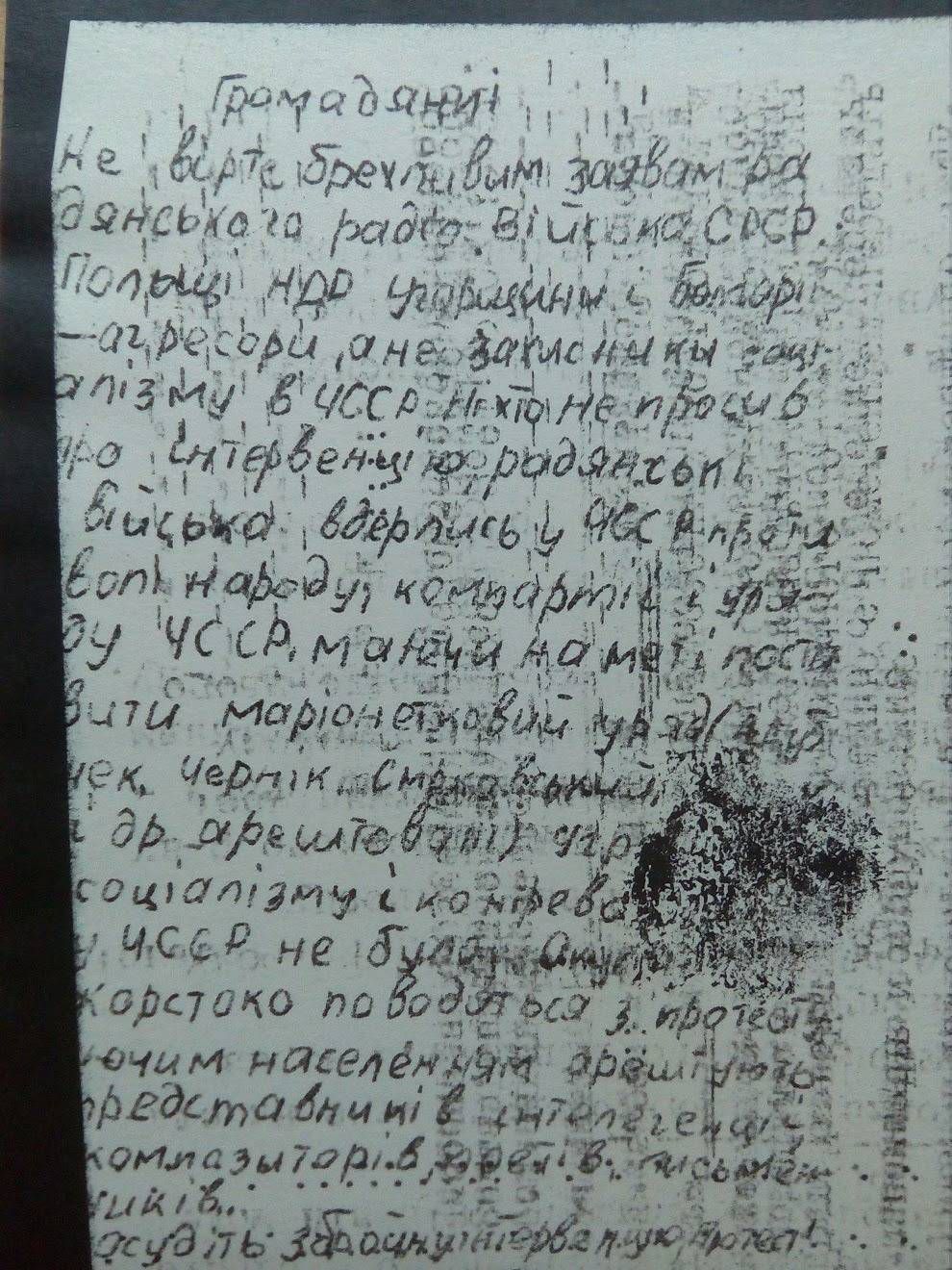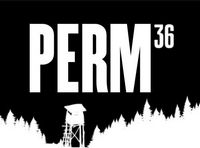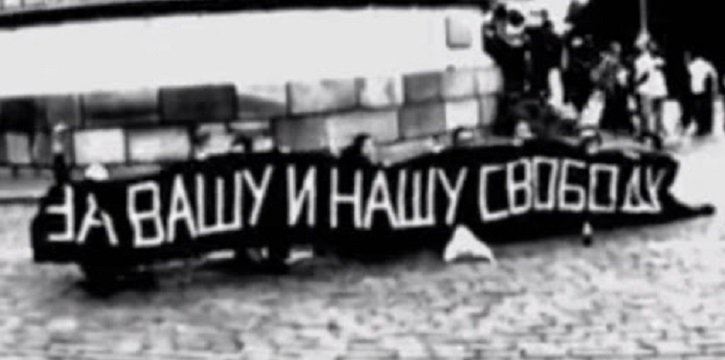On August 25, 1968, one of the boldest actions of the Soviet human rights movement took place. On Moscow’s Red Square, a group of Soviet dissidents openly protested against the invasion of Czechoslovakia by the USSR and other Warsaw Pact countries.
The demonstration included poet and human rights activist Natalya Gorbanevskaya, physicist and social activist Pavel Litvinov, writer Larisa Bogoraz, poet Vadim Delone, philologist Viktor Fainberg, engineer Konstantin Babitsky, and student Tatyana Baeva. Their banners read: “For your freedom and ours” and “Hands off the Czechoslovak Socialist Republic!”
Known as the “Demonstration of the Seven”, the protest lasted only a few minutes before all participants were beaten and arrested. Five were sentenced to imprisonment, while two were subjected to compulsory psychiatric treatment.
The echo of their action reached across the world. The Prague newspaper Literární listy wrote at the time:
Seven people on Red Square — at the very least, seven reasons why we can never hate Russians again.
The participants themselves were fully aware of the risks. Larisa Bogoraz later stated: We wanted to show that there are people in the Soviet Union who think differently.”
Resistance was not limited to Moscow. In Perm labor camps, at least twenty individuals were later imprisoned for protesting the invasion of Czechoslovakia. Among them were Ukrainians Zoryan Popadyuk and Yaromyr Mykytka, who had been arrested in the Lviv region for distributing leaflets stating:
Do not believe the false statements of Soviet radio. The armies of the USSR, Poland, GDR, Hungary, and Bulgaria are aggressors, not defenders of socialism in the ČSSR. No one requested intervention. Soviet troops entered the ČSSR against the will of the people, the Communist Party, and the government, to install a puppet regime (Dubeček, Černík, Šmíd, and others were arrested). There were no threats to socialism or conservatism in the ČSSR. The occupiers act brutally toward protesting citizens, arresting intellectuals, composers, poets, and writers. Condemn the military intervention. Protest!

Leaflet of Zoryan Popadyuk. 1968. Ukraine
Every word written or distributed was treated as a crime, and every leaflet became a reason for prosecution.
The memory of the “Demonstration of the Seven”, of Ukrainian dissidents Zoryan Popadyuk and Yaromyr Mykytka, and hundreds of other prisoners of conscience remains alive today. Archives, museums, and human rights initiatives continue to preserve their stories as a reminder of the cost of freedom of speech and civic courage. Across the world, commemorations are held every year on August 25 in their honor.
For us, this is not only a historical date but also a reminder: even in the darkest times, there are people who refuse to remain silent. Their voice is the voice of a future where truth triumphs over fear.
- Source of leaflet photo: Archives of the Security Service of Ukraine in Lviv / Criminal case against Zoryan Popadyuk and Yaromyr Mykytka. P-22586.


